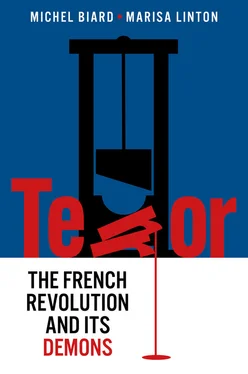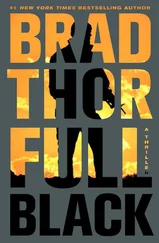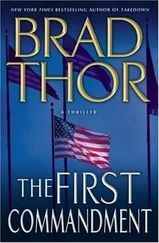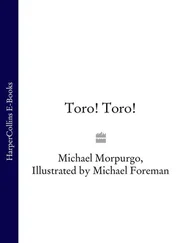11 11. Ibid. On violence in the American Revolution, see Holger Hoock, Scars of Independence: America’s Violent Birth, New York, Crown, 2017. See too, Annie Jourdan, La Révolution, une exception française?, Paris, Flammarion, 2006; and the contributions by Rafe Blaufarb, Paolo Conte, Anna Karla and Matthijs Lok, edited and introduced by Annie Jourdan to ‘The French Revolution Abroad’, part of the H-France Salon, ‘230 Years After’.
12 12. Henry and other founding fathers of the American Revolution were familiar with this political phrase which appeared in Joseph Addison’s play, Cato, a Tragedy, written in 1712.
Chapter 1 The Terror – a Concept Imposed by the Thermidorians
One of the first texts openly attacking the French Revolution, Edmund Burke’s Reflections on the Revolution in France , was published in 1790. This work by the Anglo-Irish author and Member of Parliament was quickly translated into French and other languages. 1For some it was seen as a prophetic vision announcing the Terror , as it denounced the violence of 1789, especially the killing of two royal guards during the revolutionary days of 5 and 6 October, when a crowd broke into the palace of Versailles, and under the threat of popular violence, the king agreed to move to Paris, to be under the watchful eyes of the populace. Burke not only uses the word ‘terror’ but also describes the Constituent Assembly as a meeting of deputies trembling before popular violence: ‘It is beyond doubt, that, under the terror of the bayonet, and the lamp-post, and the torch to their houses, they are obliged to adopt all the crude and desperate measures suggested by clubs composed of a monstrous medley of all conditions, tongues, and nations.’ 2
A very different view was taken by another British author, Thomas Paine, already known for having politically engaged several years earlier with the independence movement in the American colonies with his seminal pro-revolutionary pamphlet, Common Sense . Paine strongly objected to Burke’s exaggeration of the extent of the violence of 1789, as well as his comparisons with the so-called ‘Glorious Revolution’ of the late seventeenth century, which Burke depicted in glowing, Manichean terms. Paine sharply responded to Burke in Rights of Man , a work published in early 1791 and translated into French that May. Whilst Paine also used the word ‘terror’, he saw its purpose and the reasons behind it very differently. For Paine, if the ignorant populace resorted to inflicting ‘terror’, this was the consequence of them having learned such tactics from the autocratic government under which they had lived. Paine stressed that the violence of 1789 could only be understood if viewed in relation to the cruelty of the Ancien Régime, with the ‘terror’ that the people suffered provoking the appearance of another ‘terror’:
It is over the lowest class of mankind that government by terror is intended to operate, and it is on them that it operates to the worst effect. They have sense enough to feel they are the objects aimed at; and they inflict in their turn the examples of terror they have been instructed to practise. 3
To this idea of a passive ‘terror’ (which one suffers under) ripening into an active, vengeful ‘terror’ (which is directed at one’s enemies), Paine added that governments need to be taught about the notion of humanity before asking it of ‘the people’. To prove his point, Paine recalled the punishment of Damiens, who had been convicted in 1757 of having attempted regicide against Louis XV. Damiens was subjected to extensive ritualized torture, climaxing in his being ‘drawn and quartered’; the sentence carried out as a public spectacle to terrify the populace. Paine concluded that governments make a mistake in ‘governing men by terror, instead of reason’. 4One year later, in late July 1792, just before the fall of the constitutional monarchy, Robespierre took up the link between ‘terror’ and bad government, assimilating ‘terror’ with despotism: ‘Montesquieu said that virtue was the principle of republican government, honour that of a monarchy, and terror that of despotism. We need to imagine a new principle for the new framework of things that we are in.’ 5Montesquieu was again a source for Robespierre in early 1794 when he attempted to bring together ‘terror’ and ‘virtue’ in his speech on 5 February 1794 (17 Pluviôse Year II). Without virtue, terror was disastrous, but virtue was powerless without ‘terror’. 6The despotism of liberty, to take up the bold oxymoron coined by Robespierre, the union between ‘terror’ and ‘virtue’, between ‘terror’ and justice, would be linked to a state of exceptional or crisis government that was by essence transitional – the condition of France in 1793 and in the Year II – and not to a preconceived political project as the ultimate goal in itself. For Robespierre, ‘terror’ was closely linked to justice – a harsh and improvised justice for a time of crisis, but still justice. After the fall of Robespierre, the meaning of ‘terror’ would quickly evolve into something rather different, when the victorious Thermidorians started to retrospectively invent the idea of a unified ‘system’ of terror.
1. How the ‘system of terror’ and the black legend of Robespierre were retrospectively invented
On the morning of 9 Thermidor Year II (27 July 1794), Louis-Antoine Saint-Just, member of the Committee of Public Safety (the most important of the Committees of the National Convention), rose to make a speech in the Convention in which he intended to support his colleague and friend on the Committee, Maximilien Robespierre. As Saint-Just began to speak, he was interrupted by a fellow Montagnard, Jean-Lambert Tallien, who pushed his way to the rostrum, supported by a concerted group of revolutionaries, many of them also Montagnards, to denounce Robespierre. Tumult ensued. Over several hours accusations spiralled, culminating with the arrest of five deputies: Robespierre, his younger brother, Augustin, Saint-Just, Georges Couthon (also on the Committee of Public Safety), and Philippe Le Bas, of the Committee of General Security. Both Augustin Robespierre and Le Bas had actually asked to be arrested, rather than become party to arresting the others. By nightfall of the following day, 10 Thermidor, all five were dead. This moment, the Thermidorian moment, marked the onset of a sea-change in revolutionary politics, whereby the immediate past would be rewritten and reinvented, in order to blacken the reputations of Robespierre, Saint-Just and their adherents as having been personally responsible for creating a ‘system of terror’, whilst exculpating many surviving revolutionaries, who had been equally involved in revolutionary government and the recourse to ‘terror’ policies, but who had chosen the winning side in the conflict of Thermidor.
Bertrand Barère, who had been a close colleague of Robespierre and Saint-Just on the Committee of Public Safety, took an early lead in the frantic rush to distance himself from the fallen deputies. In his speech on 14 Thermidor, Barère separated ‘terror’ from ‘justice’, two terms that Robespierre had often tied together. Arguing that ‘terror was always the arm of despotism [whereas] justice was the weapon of liberty’, he urged the Convention to ‘substitute inflexible justice for terror’. 7Barère knew very well – none better – how the repressive legislation against the opponents of the Revolution, real or imagined, had been conceived and implemented, for he had been at the heart of it. Now, in a remarkable political volte-face, Barère removed any responsibility from the Convention, in particular from members of the Committees of Public Safety and General Security (the Committee of General Security had responsibility for policing, security and prisons). Barère denounced the ‘usurpation of national authority’ that Robespierre and his followers had committed when they had imposed decrees in response to ‘circumstances forced and prepared by themselves’. 8
Читать дальше












